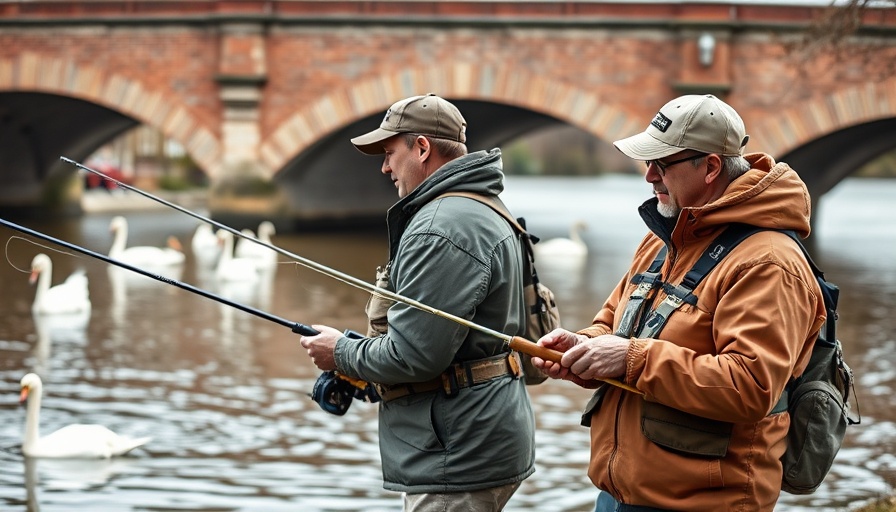
The Phosphate Crisis: A Call to Action for UK Rivers
Recent volunteer tests conducted by angling groups across England and Wales have turned the spotlight on a grave threat to freshwater ecosystems—high phosphate levels. The study revealed that 34 percent of river sites exceeded acceptable phosphate limits, leading experts to describe the situation as a phosphate 'crisis'. This alarming data, gathered from nearly 4,000 samples by dedicated anglers, underscores a pivotal moment for environmental advocacy.
Understanding Phosphate: The Silent Pollutant
Phosphates, often released from agricultural runoff, soaps, and fertilizers, are linking to the degradation of water quality. In this research, it was found that only 16 percent of rivers in England achieved what is known as “good ecological status” (GES)—notably, phosphate levels of 0.306 parts per million or lower. The consequences extend far beyond fishing—affecting biodiversity, the health of riparian habitats, and even the viability of local economies that rely on clean waterways.
The Role of Anglers in Environmental Stewardship
Anglers in the UK have become frontline guardians of their waterways. By collecting data on phosphates and other pollutants, they are positioning themselves as legitimate stakeholders in river management decision-making. Jamie Cook, CEO of the Angling Trust, noted that while the dire state of rivers is now recognized broadly, there is still significant work to be done to advocate for policy changes that protect these vital ecosystems against pollution.
Patterns of Pollution: Where Are the Crisis Points?
The data collected highlighted troubling disparities across various catchment areas. Some regions, such as the Medway catchment in southeast England, showed a total failure to meet the legal definition of GES for phosphates. Areas like Warwickshire’s Avon catchment were even more alarming, with 86 percent of sites failing to meet ecological standards.
The Larger Environmental Context: An Invitation to Eco-Conscious Hospitality
For boutique hospitality professionals, the implications of the phosphate crisis are profound. With increasing awareness around sustainability, environmentally conscious lodging businesses can play an integral role in addressing these environmental challenges. From implementing “chaos gardening” techniques, which enhance biodiversity, to promoting awareness of microplastics and their impact on aquatic life, the hospitality industry can contribute significantly to river conservation while enhancing their guests’ experiences.
Future Predictive Insights: Sustainable Practices Matter
As pollution trends worsen, it is essential that hospitality entrepreneurs implement best practices that prioritize ecological health. Simple measures like using leather alternatives to promote biodiversity, providing information on local nature reserves, and engaging guests in environmental activities can foster a community-centered approach to conservation. This can not only attract eco-conscious travelers but also help protect vital ecosystems that are integral to the hospitality experience.
A Collective Call to Action: Raising Climate Awareness
As the Angling Trust emphasizes, the government’s patronage of environmental initiatives must translate into real action. Boutique hospitality services can amplify this message by asserting their commitment to environmental stewardship. Offering educational programs about climate awareness, sustainable practices, and incorporating environmental advocacy into their brand identity can bridge the gap between guests and the ecological crises affecting local rivers.
Engagement in local river health efforts opens pathways for partnerships and highlights an establishment’s dedication to sustainability, which resonates with today's environmentally-conscious consumer. As angling groups continue their fight for clean freshwater, it’s a This is an opportunity for the ecosystem of hospitality to lend robust support, bringing attention to the collective responsibility we share for preserving our planet.
 Add Row
Add Row  Add
Add 




 Add Row
Add Row  Add
Add 

Write A Comment